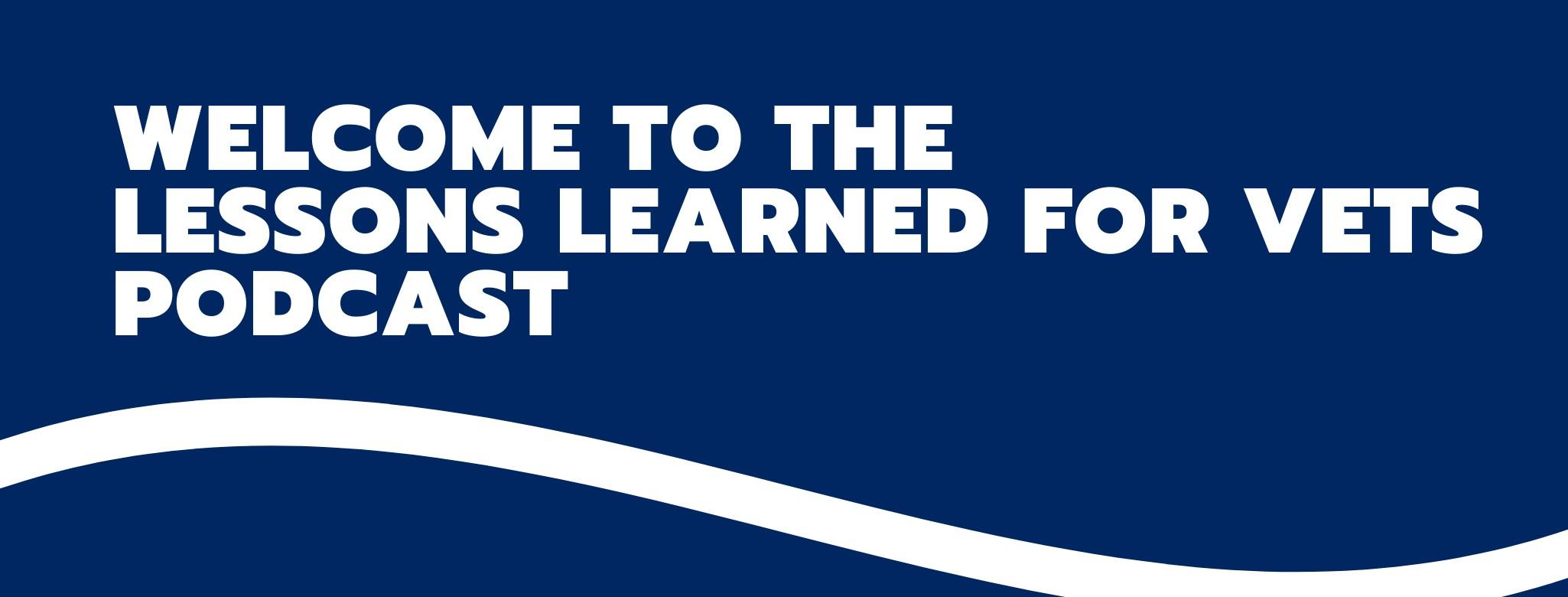
Season 3 Episode 120: Backwards Planning Your Military Transition, Part 2 with Ken Davenport
On this episode of the Lessons Learned for Vets podcast, we conclude our 2-part series with Ken Davenport. Author of The Stoic Transition, a Guide to How Veterans can Thrive in their Next Adventure, Ken brings a fresh, civilian perspective to the military transition process.
Ken encourages transitioning service members to start the process at least 18 months out. While this is common advice, Ken further explains why. There is a massive amount of information that is passed to service members as they exit the military. By starting early, a person has a runway in which to process and think through the information. It’s important to allow yourself the time to decompress, assess and review what it is that you want after the military. Set realistic expectations. In some cases, a person may have to take a couple of steps back to move forward. An O5 or O6 may have expectations of running a private business. Although they are equipped to lead, working in the private sector requires learning a new language, a new system and a new environment.
Learning to recognize what is within or out of one’s control is helpful in the transition process. It’s impossible for a person to completely control how they will fit into an opportunity given to them. Know that what you bring to the right environment will be utilized and rewarded. If it’s not the right environment, it will be made clear. In such a situation, it will be necessary to pivot to something new.
The culture of an organization is paramount to having a successful next career. There are certain indicators on the surface such as how people dress and present themselves, but there is a foundation of intangibles that can make or break a culture. For instance, does the company reward risk or value individual opinions? How do you begin to research culture? The best way to understand culture is to network. Find other veterans on LinkedIn who work at the company and ask questions. Be true to yourself and know that there is a culture for everyone.
Ken talks through the idea of backward planning. In this process, a person plans for different eventualities and makes course corrections based on the feedback they’re getting as they move toward their goal. In general, civilians tend to be reactive. Instead of thinking about how they want to reach their goal, they react to what’s right in front of them and make plans for only the next step. Backward planning is important for achieving the lifestyle that you are looking for while you are still active and productive.
Fear is prevalent when facing the unknown. If you are facing fear, try getting out of your head and freeing yourself from overanalyzing the situation. Take a break and a step back. Reach out to a mentor to gain new perspective. Ken encourages people to create their own board of advisors. Find people who know you and support you. Find people who will give you unfiltered advice in the area that you are seeking. Find a person who may be able to open doors for you in your chosen industry.
Ken encourages you to live your life today. Don’t put off for tomorrow what you could do today. Realize that nothing is guaranteed in life other than this very moment that you are living right now.
Subscribe to our YouTube channel at https://tinyurl.com/llforvets22.
You can connect with Ken on LinkedIn at: https://www.linkedin.com/in/kgdavenport/.
Explore The Stoic Transition at: https://www.amazon.com/Stoic-Transition-Veterans-Thrive-Adventure/dp/B0BLM7CCV1.
SUBSCRIBE & LEAVE A FIVE-STAR REVIEW and share this with other veterans who might need help as they transition from the military!
Are You Struggling to Write Your Resume?
I created the Veteran Resume Self-inspection Checklist to lessen the resume writing struggle for veterans. This 11-item checklist will educate you in resume best practices while giving veterans a guide to assess their resume and determine if it's ready to send to employers.
Download Your Checklist Here




